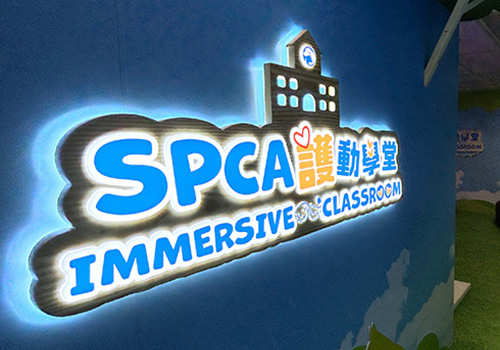
Occasionally owners surrender pets to us due to tragic, unavoidable events in their families such as illness or death. However, the majority of owners who surrender their animals do so because they did not consider the long term and choose not to look after them anymore.
The most frequently cited reasons for surrendering a pet include:
- Housing does not permit pets
- Moving house
- Leaving Hong Kong
- No space
- Too many pets
- Human pregnancy or newborn baby
The tabs below go into more detail about the specific reasons people give up pets to the SPCA. If you still want to surrender your pet, please click here for full details of the process.
Reasons for Surrendering
Housing
According to a survey of dog and cat owners in 2010, almost 10% of Hong Kong’s dog owners are living in public rental housing. Another 20% are living in subsidised rental housing. This means that there are currently more than 30,000 dogs at risk of abandonment, surrender or being given away.
One of the major reasons why dogs are surrendered to the SPCA is because their owners have not thought through how future accommodation restrictions could affect their dogs. Some move into housing that bans dogs after they arrive and they are then faced with the dilemma of moving flat or giving up their dog. Sadly, it is usually the dog that loses out.
A minority of people are highly irresponsible and get a dog knowing full well that they are not permitted. Once the dog is reported to the housing authorities, the owners must decide what to do – either get rid of their dog or be prepared to move out. Once again, it is the dog that loses out and ends up at the AFCD, SPCA, other overwhelmed shelters or, worse still, abandoned on the street or in country parks.
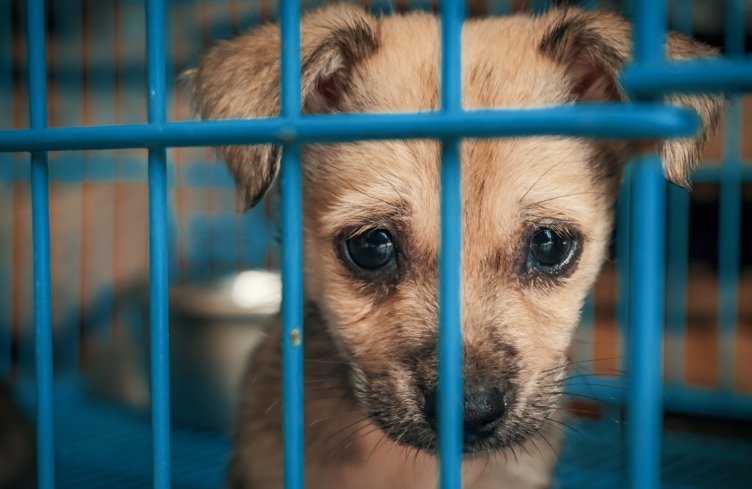
Leaving Hong Kong
A dog is a long term commitment and needs daily attention. So, consider the life span of your pet carefully, as well as your own life plan. If you are likely to move away from Hong Kong, what will you do?
Many pet owners take their dogs along with them when they leave Hong Kong. It can be done but it does take extra effort and money but it is what your dog deserves as a beloved member of your family.
If you are not prepared to move with a pet DO NOT GET ONE!

Time
Owners often underestimate the needs of a dog, or the time and responsibility involved in taking good care of their pet. They may no longer want the dog once the novelty has worn off.
Dogs are sometimes surrendered when the family member who originally got the dog leaves and the remaining family members find they cannot cope with its care. Some owners find that other commitments have increased, their priorities change and they can no longer dedicate sufficient time and energy to their pet.
Dogs are social animals, who need plenty of daily care and interaction. When owners can no longer do this, a dog’s welfare starts to suffer e.g. grooming and baths decrease, walks decrease, dogs may be caged or tied up for long periods of time, signs of illness not noticed etc. This is neglect and will result in health and behavioural problems in your dog.
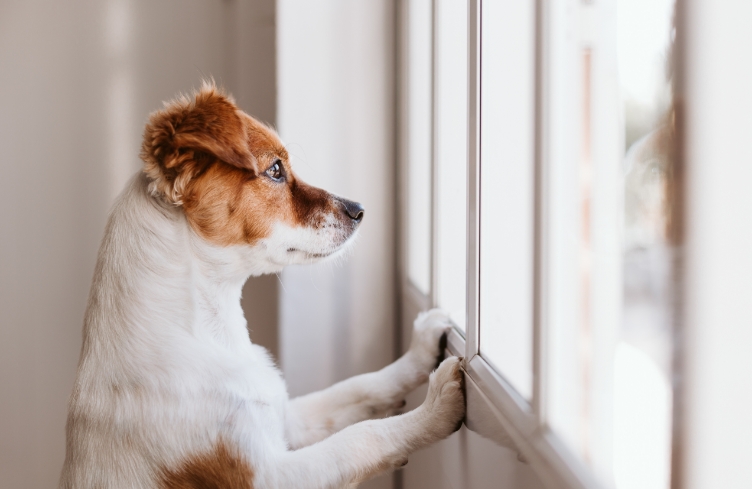
Behaviour Problems
A commonly sited reason for surrender is that the dog has behavioural issues such as aggression, barking and separation anxiety. When dogs behave badly, it is often because owners have let their pet develop bad habits. Once behaviour problems develop, owners need to recognise the problem and address the root cause. Behaviour problems can be avoided or managed.
If you need advice on your dog’s behaviour, please call our Dog Behaviour and Training Hotline:
 2232 5567 or email: BT@spca.org.hk
2232 5567 or email: BT@spca.org.hk

Kittens
Cat owners can become overwhelmed by the offspring of their un-desexed pets. Unsurprisingly, surrendered cats are often not desexed and many surrenders could be avoided if this simple process had been carried out.
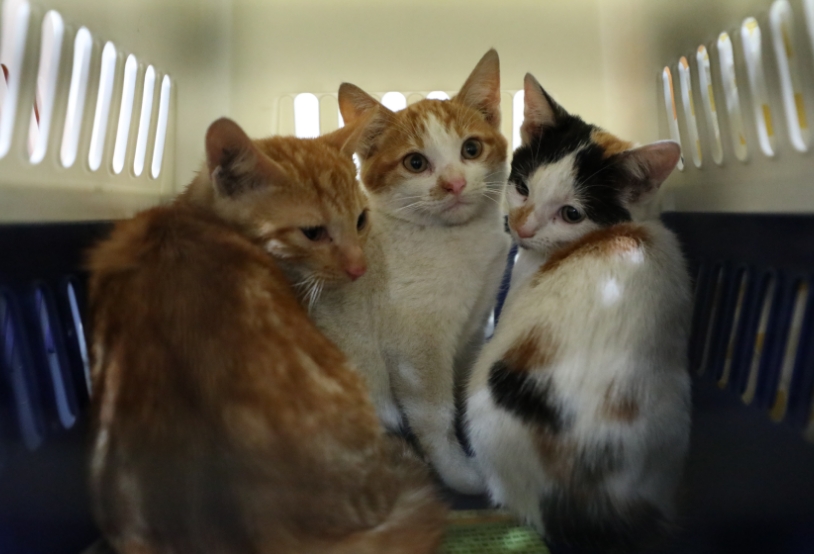
Leaving Hong Kong
The second most common reason for cat surrenders is when owners leave Hong Kong and decide not to take their cats with them. Taking your cat with you if you leave Hong Kong can be done but it does take ex
It is unfair and irresponsible to adopt or buy any pet if you are unwilling to take it with you when you leave Hong Kong.

Baby and childrens’ health
Families sometimes opt to surrender their cats when there is a pregnancy or newborn in the family, even though many people raise babies and children alongside their cats together with no problem.
Expectant mothers worry about Toxoplasma gondii which can pose a threat. Specifically, infection via a cat’s faeces can cause problems for the baby. However, risk of exposure from cats is far lower than that from other sources, such as eating undercooked or raw meat, or handling raw vegetables and not washing your hands well afterwards. Studies have revealed no correlation between cat ownership and infection.
During pregnancies, husbands and other family members can help clean out the litter tray. Having someone else change the litter tray is the best way to avoid exposure to your cat’s faeces. Those who do clean out the cat’s litter tray should wear gloves and wash their hands thoroughly afterwards. Wash your hands after handling your cat and try to keep it indoors to prevent transmission from other cats.
Dozens of our staff have worked with cats or kept cats throughout their pregnancies with NO problems from Toxoplasma gondii. If you are concerned about Toxoplasma gondii, and if you are pregnant or hoping to get pregnant, you should discuss this with your veterinary surgeon and your doctor.
Sometimes family members may be concerned that the presence of a cat can trigger health problems in a child. This is largely unfounded and recent research suggests that the benefits of growing up with a pet, particularly before the age of 5, boosts the immune system.
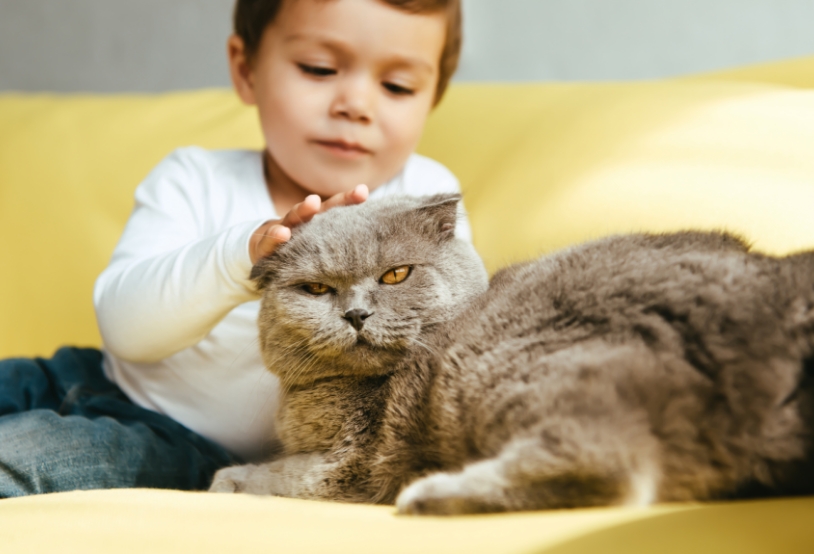
Almost 500 rabbits, guinea pigs, chinchillas and hamsters are surrendered to the SPCA by their owners every year with hamsters making up more than half of the total.
Too many
Though guinea pigs, rabbits and chinchillas can be desexed, pet owners who choose not to do so find that they not only have more animals than they bargained for but will also have to deal with behaviour issues like mating related aggression, as well as possible health problems of un-desexed animals.
Hamsters in particular, are prolific breeders and can have more than 50 babies a year! They are solitary by nature, so are fine on their own and keeping more than one hamster can result not just in breeding but also fighting. Hamsters can be extremely aggressive and have been known to kill cage mates.
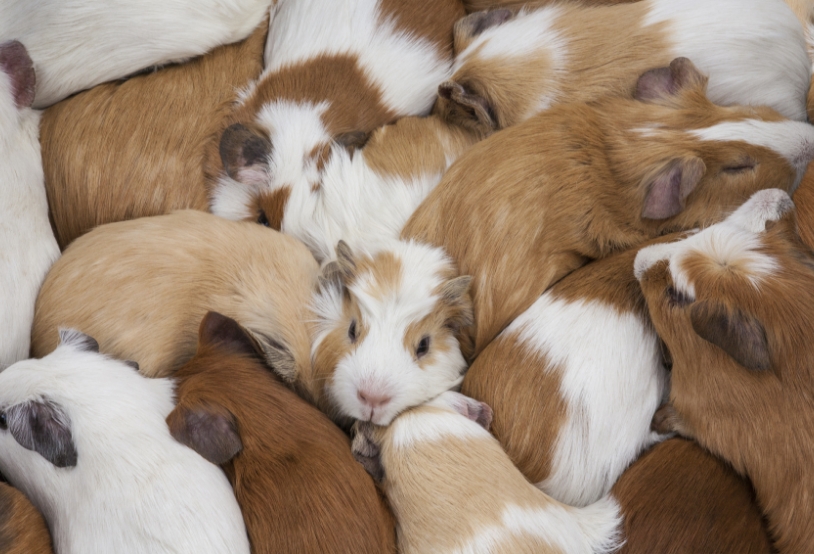
Allergies
Allergies are the main reason for the surrender of rabbits and guinea pigs. They are triggered by specific proteins in an animal’s saliva, skin glands as well as urinary/reproductive tract that are left on their fur during grooming or shed on furnishings. The type of allergen can vary from species to species, and the amount that triggers the allergy varies from animal to animal. That’s why some people are allergic to some cats, but not others!
However, don’t immediately assume allergic reactions must be due to a pet. Allergies can also be triggered by a multitude of different allergens, including dust mites, pollen in the environment or other items in your home.
Consult your doctor about the particular allergen and explore other management strategies. Some pet owners have managed their allergy using High-Efficiency Particulate Air (HEPA) filters, a pet free room or delegating pet grooming or bathing duties to non-allergic family members.

Time
Despite the fact that small furries are often considered an “easy” pet for children the novelty often wears off and the animals are surrendered once the reality of daily care sets in. In fact, almost 20% of rabbit owners and more than 40% of chinchilla owners find the daily care of these animals too much.
Remember that rabbits, guinea pigs and chinchillas have relatively long lives. Rabbits and guinea pigs can live up to 10 years and chinchillas up to 15 years – almost as long as a dog or cat. They need special diets and though they may not need to be walked like dogs, they still require space to run around and exercise.
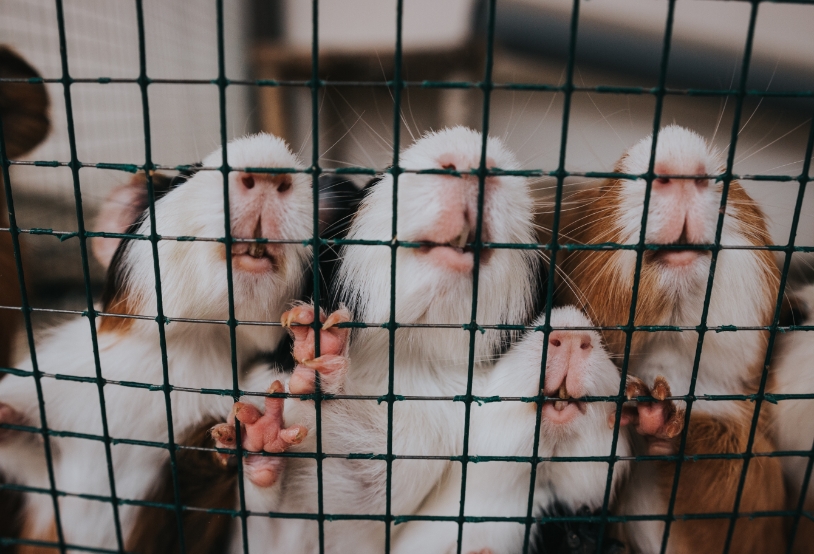
The welfare and health of turtles, snakes and lizards is often compromised by their owner’s lack of knowledge, resources and ability to care for them properly. The poor welfare of such animals is of particular concern as they suffer more acutely in captivity. However, the keeping of exotic reptiles is on the rise.
Today, the majority of reptiles we receive have been abandoned. Animals are brought to us after being found in ponds, country parks, public gardens, rubbish points and even the MTR. We have found land tortoises that have been released into ponds but drowned because they are not adapted to swimming while there are numerous examples of fresh water turtles being released into the sea where they dehydrate and die.
Their release into Hong Kong’s natural areas threatens Hong Kong’s native reptiles with competition for food and habitat, as well as introducing diseases and parasites that native animals may not necessarily face.
More often than not, reptiles that are surrendered or abandoned are in very poor condition and show signs of long term suffering – a direct result of their owners’ long term neglect or ignorance.
Aside from a lack of knowledge, the same reasons that cats, dogs and small furries are surrendered also apply to reptiles:
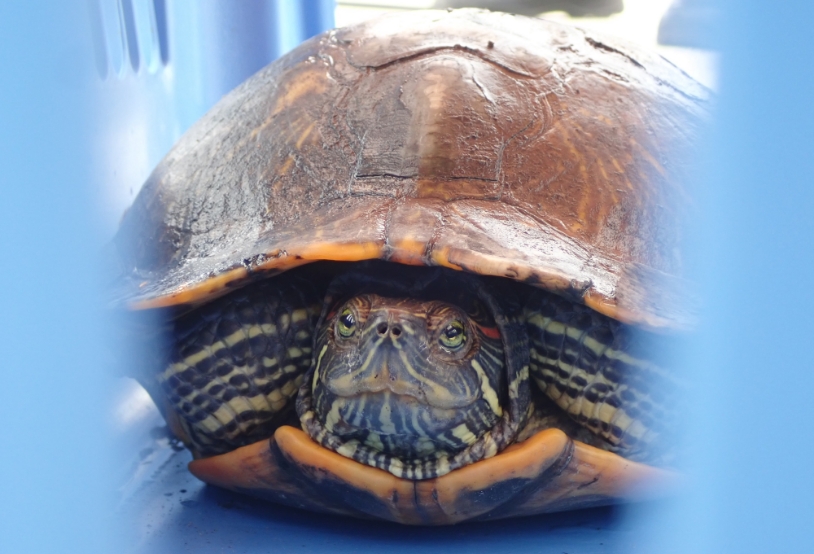
Space and time
Unlike dogs and cats, reptiles can grow exponentially in size. While Red-Eared Sliders may only measure 5cm and weigh less than 50 grams when they are bought from a pet shop, they can grow to more than 30cm and weigh up to 2 kilograms.
This means that they quickly outgrow the tiny tanks that pet shops often sell with the turtle. After paying less than HK$20 for the turtle, owners are unwilling to spend the thousands of dollars necessary for a suitably-sized tank, the appropriate diet, proper lighting and filtration. Simply put, owners did not do their research before acquiring the turtle and then do not want to deal with their reptile’s growing needs, costs and long life span.
Moving house or leaving Hong Kong
Few people realise how long reptiles live. Reptiles live twice and sometimes three times as long as cats and dogs. Moving house is part and parcel of Hong Kong life but some owners find they do not have the space to accommodate their pet, or simply no longer want the pet in their new home.
Moving country with your reptile is often more complicated than moving with a cat and dog. Special permits may need to be obtained to import your pet legally when you move. Even when it is possible, some owners find it too much trouble to move with their reptile and give them up instead.
It is unfair and irresponsible to adopt or buy any pet if you are unwilling to take it with you when you leave Hong Kong.

Related Links
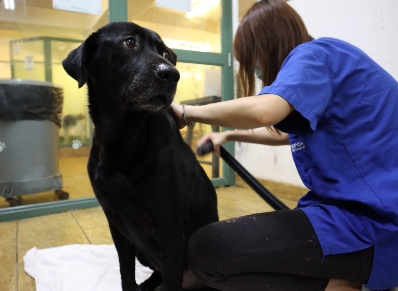
Surrendering Process
You can make an appointment with our Receiving Department on 2232 5553 between 9am and 6pm seven days a week. You may also call this number should you have any enquiries regarding the surrender process. Please note, though, that …

